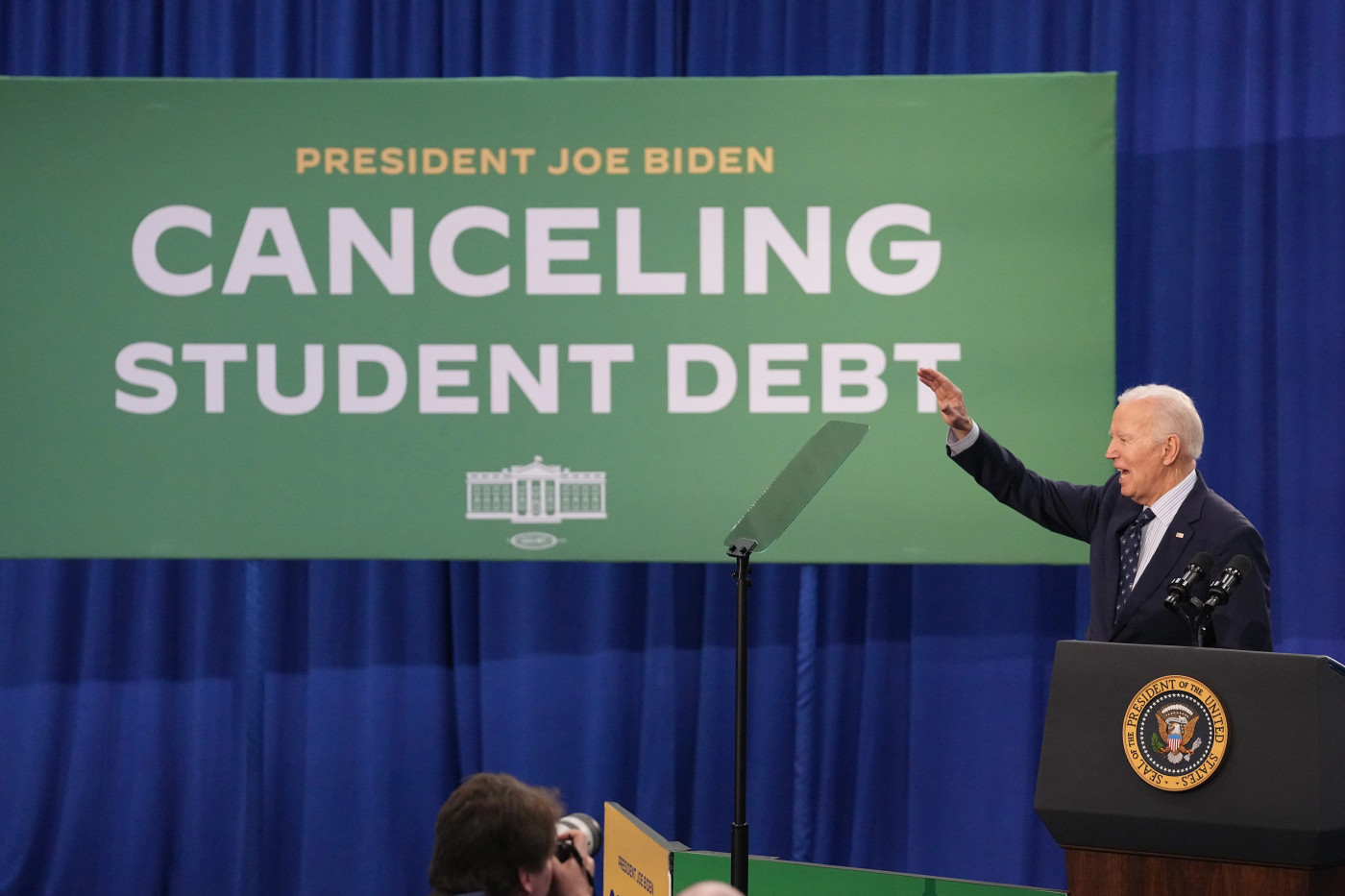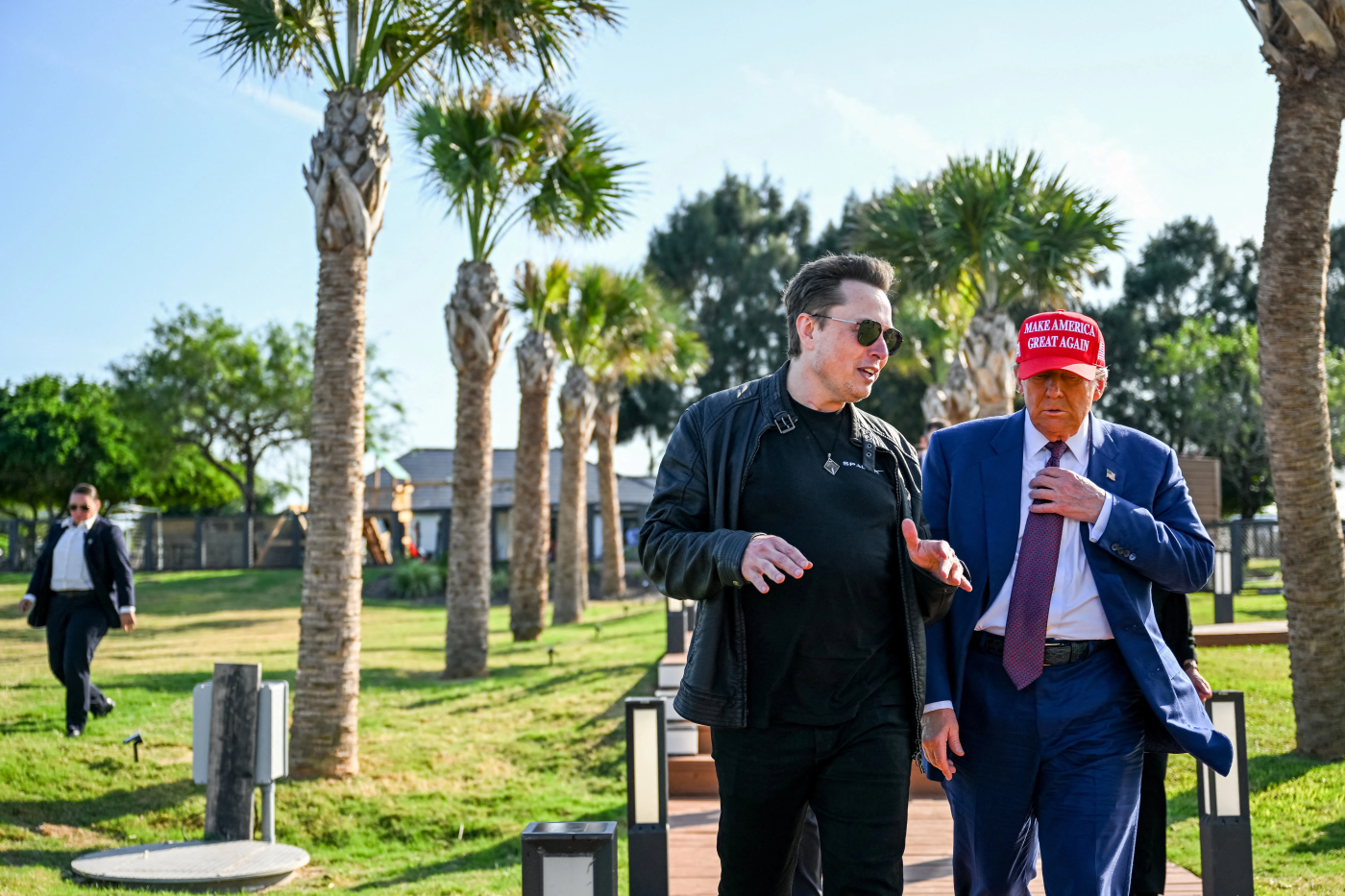
Donald Trump and Elon Musk are pushing the H-1B visa. Does it take American jobs?
A recent flare-up over visas for tech workers revealed a rift among Republicans on immigration.
Steve Bannon, once Donald Trump’s chief strategist, termed the H-1B visa program a “total and complete scam.” Many Trump supporters sided with Bannon. So did Bernie Sanders, the progressive Vermont senator.
Bannon was addressing comments from billionaire Elon Musk, Trump’s corporate ally, who had come out in favor of H-1B visas. Musk tweeted that the visa was “the reason I’m in America,” adding an expletive. “I will go to war on this issue, the likes of which you cannot possibly comprehend.”
The president-elect sided with Musk, who was born in South Africa, setting the table for a potential showdown in the second Trump administration.
At issue is a visa program designed to help American companies import skilled workers from other countries.
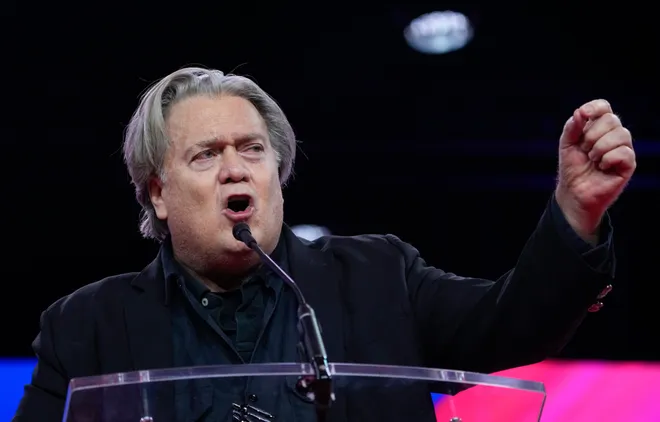
Does the H-1B visa take away American jobs?
Supporters say the H-1B visa encourages innovation and fires up the American economy. Detractors say the program takes jobs from Americans.
"The main function of the H-1B program is to lower the wages of American workers, and to exploit people from abroad," Sanders said in an interview with USA TODAY.
Before we roll out the arguments from both sides, let’s summarize what research and hard data say about the H-1B:
Yes, the program hurts some American workers, especially in tech. Investigations have revealed cases where employees had to train the H-1B workers who replaced them. Research shows computer scientists would earn more money in a world without visas.
But there’s ample evidence the H-1B helps pretty much everyone else. Workers who enter the country on visas go on to start and run billion-dollar companies. Musk says he entered the country on a visa. He now runs Tesla, which employs more than 100,000 people.
“Bottom line, Americans are better off,” said Gaurav Khanna, an economist at the University of California, San Diego, who has studied the H-1B issue in depth.
The visa allows companies to “obtain high-skilled workers on a temporary basis,” generally to work in specialty jobs, often in tech, according to a recent government report. The visas are typically granted for three years but can be extended to six. Many visa holders become permanent residents.
The number of new visas is capped at 85,000 a year, although the limit doesn’t apply to nonprofit employers. All told, the government approved or extended about 386,000 visas in fiscal year 2023.
The median salary for an H-1B worker was $118,000, which is roughly twice the median income for an American worker.
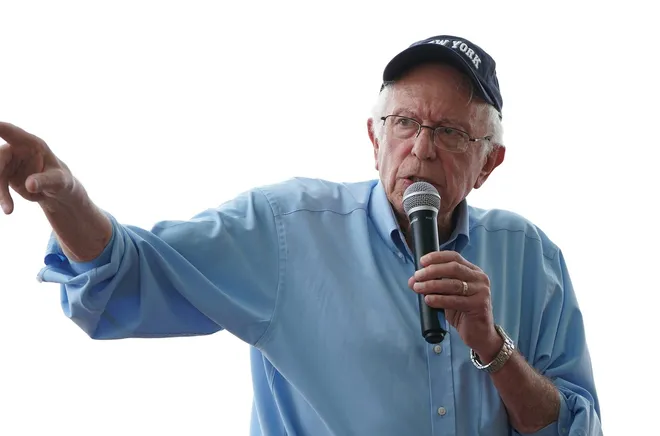
Critics say companies use the H-1B visa to exploit foreign labor
Yet, critics say corporations exploit the H-1B visa to get cheap labor from abroad.
“The program is designed to allow U.S. companies to bring in foreign guest workers to replace or displace American workers,” said Eric Ruark, director of research and sustainability at NumbersUSA, a group that advocates for immigration curbs. “It isn’t that there aren’t available workers in the U.S. to do these jobs.”
An income of $118,000 doesn’t sound like cheap labor. But a 2020 report from the left-leaning Economic Policy Institute found that employers generally undercut local wages when they hire H-1B workers, paying them below market rates.
"The way I see it is, this is a program which enables large corporations, often high-tech corporations, to make more money by paying foreign workers lower wages than they pay American workers," said Sanders, the independent Vermont senator.
A more recent report from the economic think tank found that the top 30 H-1B employers hired more than 34,000 new visa workers in 2022, while simultaneously laying off at least 85,000 workers in 2022 and early 2023.
Visa critics point to Census data that show only 28% of U.S. college graduates with degrees in science, technology, engineering or math (STEM) actually work in STEM jobs.
Meanwhile, H-1B workers are being employed as dog trainers, massage therapists and cooks, Sanders said, in an op-ed for Fox News.
Sanders wrote that many visa workers are effectively indentured servants, who “can have their visas taken away from them by their corporate bosses if they complain about dangerous, unfair or illegal working conditions.”
Academic research seems to confirm that American tech workers would be marginally better off if the visa disappeared. One 2017 study estimated that American computer scientists would earn as much as 5% more if the H-1B didn't exist.
But here’s the caveat:
“Everyone else in the U.S. economy is better off, and meaningfully better off,” because of the H-1B, said Khanna, the San Diego economist, who co-authored the study.
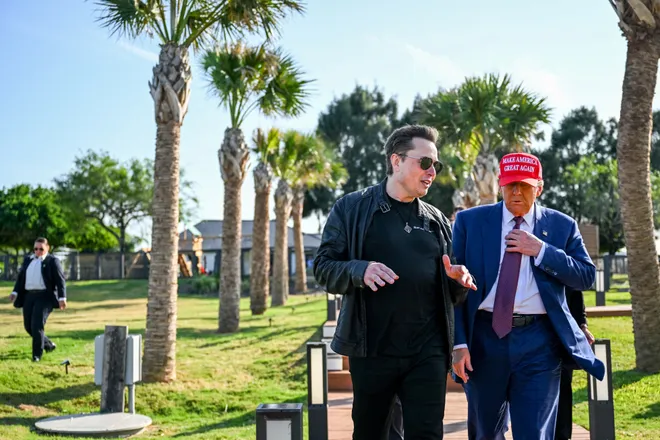
Advocates say the H-1B visa is good for the US economy
Supporters say the H-1B visa supercharges the American economy.
“My take is that it’s a benefit to U.S. workers that H-1B workers come here and increase production on goods and services that are extremely valuable to them and improve their standard of living,” said David Bier, director of immigration studies at the libertarian Cato Institute.
A fact sheet from the American Immigration Council, a research and advocacy group, lists five ways visa workers help the economy:
- They often have different skill sets than American-born workers and can complement them in the workforce;
- They spend and invest in the U.S. economy;
- Businesses leverage visas to expand U.S. operations, rather than contract or move overseas;
- Visa workers create new companies, expanding the labor market;
- Ideas and innovations from visa workers fuel economic growth.

“What’s at stake is that we would have much less innovation, a lot fewer startups, and more work would go abroad” without the H-1B, said Stuart Anderson, executive director of the National Foundation for American Policy, a nonpartisan research organization.
“The H-1B visa, in practice, is the only way for a highly skilled foreign national to come into the United States and work,” he said.
The program is not perfect. In particular, observers on both sides deride the annual cap. Demand for visas often exceeds supply. As a result, visas are awarded by lottery.
“The lottery doesn’t seem to be serving anyone’s interest very well,” said Julia Gelatt, associate director of the U.S. Immigration Policy Program at the nonprofit Migration Policy Institute.
The 85,000-visa annual limit “is totally arbitrary, just made up,” said Bier of Cato.
But Gelatt doesn’t think either Congress or the Trump administration would seriously consider removing it.
“I think that there are a lot of people aligned with the incoming Trump administration who don’t see value in immigration, period,” she said.
